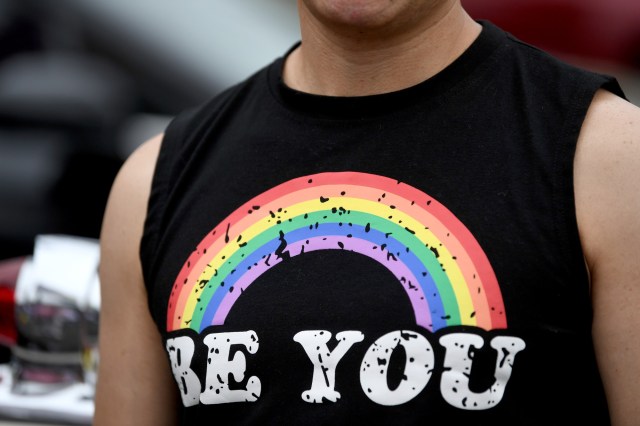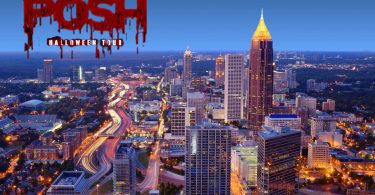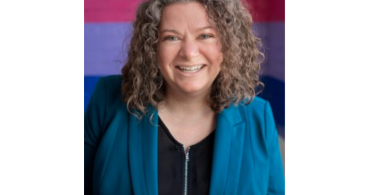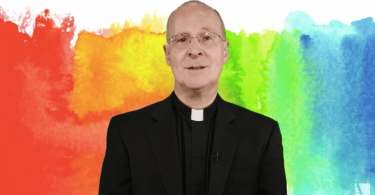Participants and spectators of the L.A. Pride Parade, the longest running pride parade in Southern California, make their way down Hollywood Boulevard on Sunday, June 9, 2024. A report on the LGBTQ+ community in LA County discussed at the LA County Board of Supervisors meeting on Tuesday, June 18, 2024, points out some of the barriers faced by gay, trans, lesbian, bisexual and nonbinary residents of LA County.
(Photo by Axel Koester, Contributing Photographer)
The LGBTQ+ community is experiencing far greater impacts from high housing costs, failed access to healthcare, unemployment and mental distress than non-LGBTQ+ residents of Los Angeles County, according to studies released Tuesday by a UCLA research group.
Results of a survey from the Williams Institute at UCLA School of Law, including its Lived Experiences in Los Angeles County Survey, and a separate survey of transgender and nonbinary adults by the county, found the impacts were much greater for the 665,000 LGBTQ+ residents of the county compared to the general population. Some examples include:
• More than 28% of those surveyed were unemployed, compared to 5% of L.A. County residents overall.
• Twice as many as the general population, about 27%, reported having fair or poor health, while 46% were without healthcare.
• On mental health, the numbers were multiple times higher than the general county population. Depression was twice as common, and suicide attempts were four times more common.
LGBTQ+ individuals in all the surveys cited the high cost of living as their principal worry. One-third of LGBTQ+ adults reported living in a household 200% below the federal poverty level, the results showed. The surveys also found the cohort is more rent-burdened and more likely to be unhoused than the general population.
“What they worry about is they can’t afford to live here. They are struggling to stay here and meet the high cost of living,” Brad Sears, founder and executive director of the Williams Institute, told the L.A. County Board of Supervisors during a presentation in downtown L.A. on Tuesday, June 18.
The county’s high rents and high housing costs overall haven’t stopped queer and transgender people from moving to L.A. County from other states or countries that have laws or pending legislation restricting their rights. Often they arrive with almost nothing and that can lead to a pathway into poverty.
“Many come here, fleeing other parts of the world that are less supportive, or they are rejected by their families and have to build their lives here,” Sears said.
A large majority, about 82%, believe L.A. County is a good place to live and that elected officials are responsive to their needs. However, 50% said they are less comfortable getting services from government agencies and prefer going to community-based organizations, such as LGBTQ centers in Los Angeles, El Monte, Whittier, Pomona, Long Beach and Torrance.
“The findings highlight progress we’ve made but also the challenges facing the LGBTQ+ community in Los Angeles County,” said Third District Supervisor and board chair Lindsey Horvath, who invited the Williams Institute and others to discuss the reports. “It is clear our work must continue and there’s a lot to be done.”
The Williams Institute surveys used data from 1,006 LGBTQ+ adults in Los Angeles County who completed the 2023 L.A. County Health Survey (LACHS) conducted by the county’s Public Health Department. They also included responses from 504 LGBTQ+ individuals who participated in the Lived Experiences in Los Angeles County (LELAC) Survey.
The Transgender and Nonbinary Survey in L.A. County heard from 322 respondents. The top two concerns from that survey were cost of living and housing. About 74% were burdened by housing costs, a percentage researchers said was much higher than the general county population.
About 29% of the transgender and nonbinary respondents said they were denied housing.
“Despite a supportive policy environment in Los Angeles County, experiences of stigma and discrimination still exist and can hinder access to necessary resources for trans and nonbinary residents,” said lead author Jody Herman with the Williams Institute.
Among all LGBTQ+ residents who responded, 28% reported unfair treatment within the past five years based on their LGBTQ+ status. And 40% reported verbal harassment in the same time period, while 17% said they were harassed by law enforcement.
Because they don’t always feel safe going out, or want to avoid public harassment, respondents said they don’t go to public parks, beaches and even Pride festivals.
“They avoid public transportation to protect themselves. Many tell painful stories of being harassed even going to a Pride event,” Sears said. He said many LGBTQ+ individuals are people of faith but they avoid houses of worship out of fear for their safety.
For transgender and nonbinary people, 70% have taken actions at work to avoid discrimination, such as staying at a job they’d prefer to leave. Also, 29% have had at least one negative experience with a boss or with coworkers.
“The discrimination we face simply because of who we are is one of the things that hinder the way we live our lives,” said Bamby Salcedo, a transgender woman and president and CEO of the TransLatin@ Coalition, the largest transgender-led nonprofit service provider in the United States.
“What we need as people, the respondents said, is to be seen, respected and to be validated as who we are,” she told the board.
One recommendation from the studies is that the county hire more queer and transgender people. “What came through loud and clear is yes, they want allies ,but they also want recruiting and hiring. So when they walk through the door they see someone there like them,” Sears said.
Related Articles
Mpox shows uptick in LA County, prompts free vaccines during Pride events
8 years later, Orlando remembers 49 victims of Pulse mass shooting
A history-making LA County LGBTQ+ Commission meets for the first time
Supreme Court justices Alito and Roberts discuss politically sensitive topics in secret recordings
Anti-gay ‘No U-turn’ signs come down in LA’s LGBTQ-friendly Silver Lake
Related links
Thousands celebrate ‘Power in Pride’ at 54th annual LA Pride Parade
Leaders push for greater LGBTQ+ visibility in the San Gabriel Valley
For a Good Cause: Celebrating the trans community with the LGBTQ Center of Long Beach
PHOTOS: Pomona Pride Center opens doors to community
A new LGBTQ+ Community Resource Center in Whittier gets closer to reality







